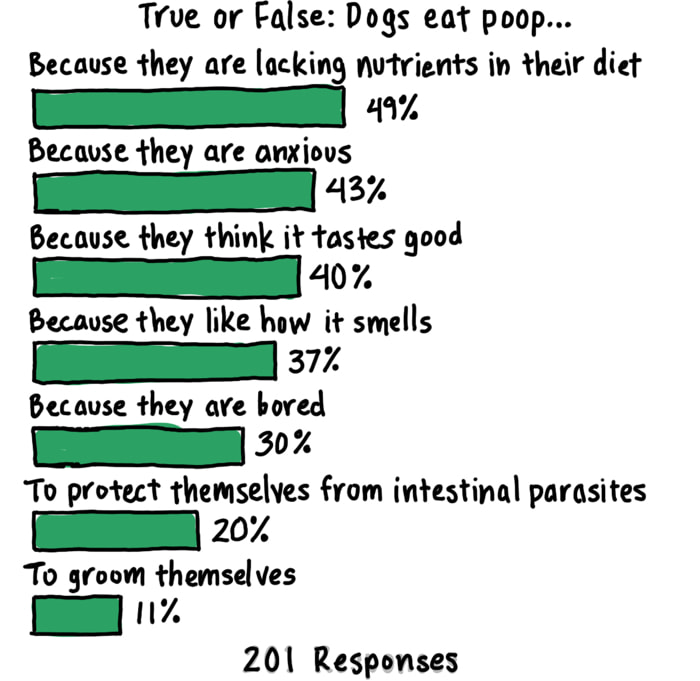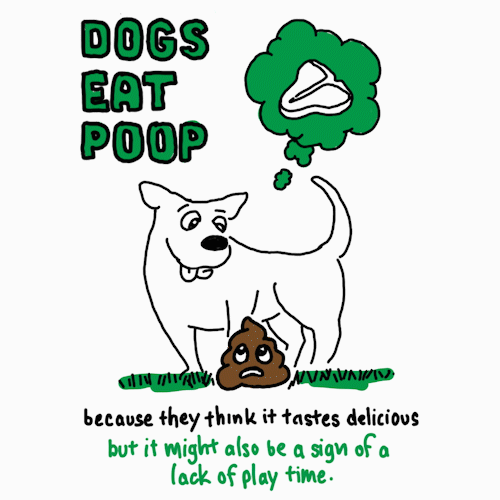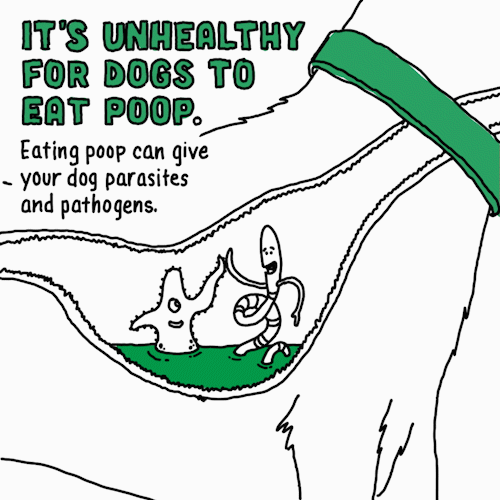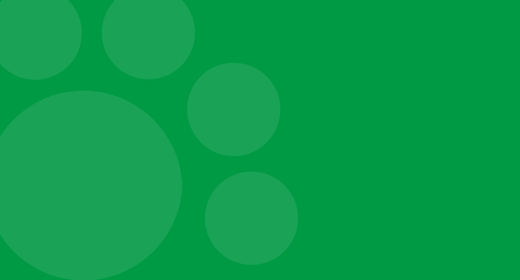

Like any companion or roommate, dogs — for all their love and cuteness—have habits we just don’t understand. One question dog owners often ask their pets: “Why? Why would you eat poop?”

When we polled* dog owners recently, most thought it was because a dog is lacking nutrients (49%), they’re anxious (43%) or they just think it tastes good (40%).
Dogs are significantly more likely to eat the droppings of another species (e.g., horses, rabbits) than their own.
We held our noses and got to the bottom of the issue with the help of some experts.
While those in our poll thought this was the number-one reason for the behavior, it has actually never been proven. “It’s a myth dogs eat poop because they’re seeking nutrients they aren’t getting. There’s no evidence to back this,” says
Opens a new windowDr. Jo Gale, BVetMed CertLAS MRCVS, Senior Manager, Global Science Advocacy at Waltham Petcare Science Institute.

According to Opens a new windowDr. Tammie King, Applied Behavior Technical Leader at Waltham Petcare Science Institute, “It can occur where there is lack of environmental enrichment. You see this often in dogs who are kenneled and have a lack of opportunity to exhibit normal canine behavior.” So if you need another excuse to get out and play with your pooch, this is a good one.
Believe it or not, this is the main reason dogs eat poop. Dr. Jo Gale explains: “Dogs are scavengers by nature and use any opportunity to eat what they can, when they can. They consider it a ‘tasty snack.’” Dr. Tammie King adds that “[Dogs eating poop] is a learned behavior. They’ve done it, enjoyed it, and that behavior is repeated.”
We love our dogs so much that we’re willing to trust our best friends on this. Maybe we should come out with a line of doggie breath mints though. Hmm.

“Ingesting feces from any animal increases potential for ingesting parasites and pathogens,” cautions Opens a new windowDr. James Serpell BSc, Phd Professor of Humane Ethics & Animal Welfare at University of Pennsylvania School of Veterinary Medicine. He went on to say, “[It’s] not something humans should ignore, but it's not worth getting too excited about it.”
All the experts we consulted said that if your dog occasionally eats poop, it’s nothing to be overly alarmed by. Just keep an eye on the frequency and their overall health. And as always, make sure they’re getting a nutritious diet and plenty of exercise and attention. If you have any concerns contact your vet.
Despite dogs liking the taste of poop, we’re going to stick with the healthy range of more traditional flavors offered in all IAMS dog foods.
*Surveyed U.S. dog owners, age 18+
Sample Size: n=201
Fielded May 8 to May 10, 2020


Bringing a furry friend home is one of the greatest things you will do. If you are someone who has been longing for a furry companion, you should wait no more... however, only if you are confident that you can take complete care of this four-legged angel. Puppies need love and care, so as their caregivers, you need to help them grow into happy and healthy dogs.
Stay by your pet’s side throughout its growing stage. This is that time of its life where you need to do more than just provide food, love, and fun times; you must understand dog nutrition, follow the vaccination schedule, and potty train your puppy. Sparing some time and energy to provide your pet with basic puppy care can help you build a loving relationship with your pooch. So, let us explore a few things you can look into while nurturing a puppy. This basic puppy care guide will also keep you informed with what to expect in the first few months of being a caregiver.
Wondering what to know about taking care of a new puppy? Let us start with the most basic things like puppy proofing your house. That is right. Puppies and babies fall in the same category: delicate and fragile! You need to be careful about their surroundings and make sure that there is nothing hazardous around. Puppies are naturally curious. Make sure they do not encounter things like chemicals, electrical cords, harmful houseplants, valuables, and especially breakables. You also need to get necessary pup supplies like a feeding bowl, collar, leash, and more. Set up a cosy corner for your puppy to rest in!
Choosing the right puppy food is of paramount importance. You must pick out puppy food that is specifically formulated for growing puppies as it needs the right kind of nutrients to grow stronger. So, avoid adult dog food if your pet is still a pup.
Not sure when to make a switch to adult dog food? Well, it totally depends on the breed size. If you have a small or medium breed dog, you can switch to dog food once it turns 9 to 12 months old. If you have a large breed dog, continue feeding puppy food until it turns 12 to 24 months old. Apart from that, make sure your pup always has access to fresh and clean water!
This is what a typical puppy feeding schedule would look like:
At IAMS™, we offer a range of puppy as well as adult dog food that nourishes your furry friend with vitamins, minerals, proteins, and other essential nutrients. Our products are made with premium-quality ingredients to ensure that your dog enjoys every bite of its food.
Taking your furry friend to the vet is the most important part of taking care of a puppy. Your dog’s first visit to the vet will help you learn about your dog’s overall physical health. Vet visits will also keep you informed about the vaccination schedule. In fact, it is recommended to make a list of all questions that you may have. This list should include topics like:
Puppies should meet a variety of different people, dogs, objects, and situations – all in a positive way. The most important time for pups to socialise is between three and 12 weeks of age, however, it should continue throughout a puppy’s development. As pet parents, you can take your pooch to puppy classes as it provides a great opportunity to socialise puppies.
You can get started with potty training from the day one. This will help inculcate basic bathroom manners in your dog and will save you from cleaning the floor every time your pooch excretes. So, pick a bathroom spot outside your house and take your pup to the same place whenever it is potty time. Praise it right after it is done. You can also reward it with treats. However, under no circumstances must a puppy be yelled at since it may ignite fear.
The best way to train is to reward good behaviour and ignore unwanted behaviour. It is never too early to begin training a puppy, but owners must remember that very young puppies become tired or distracted easily so training sessions should be kept to a short duration.
Dogs are prone to losing tooth, bad breath, and periodontal diseases. Moreover, they are good at hiding their dental pain. Hence, owners should introduce some form of oral care for their puppy as early as possible. Consult your vet to ensure that you pick the best dental care option for your pooch.
Amounts of exercise should be controlled for puppies during growth. They should not be forced to exercise beyond the amount of time they would engage in with another puppy of the same age. Moreover, your furry friend must be allowed to rest when they need to. So, instead of offering a one long playtime period, go for two short walks.


Bringing a furry friend home is one of the greatest things you will do. If you are someone who has been longing for a furry companion, you should wait no more... however, only if you are confident that you can take complete care of this four-legged angel. Puppies need love and care, so as their caregivers, you need to help them grow into happy and healthy dogs.
Stay by your pet’s side throughout its growing stage. This is that time of its life where you need to do more than just provide food, love, and fun times; you must understand dog nutrition, follow the vaccination schedule, and potty train your puppy. Sparing some time and energy to provide your pet with basic puppy care can help you build a loving relationship with your pooch. So, let us explore a few things you can look into while nurturing a puppy. This basic puppy care guide will also keep you informed with what to expect in the first few months of being a caregiver.
Wondering what to know about taking care of a new puppy? Let us start with the most basic things like puppy proofing your house. That is right. Puppies and babies fall in the same category: delicate and fragile! You need to be careful about their surroundings and make sure that there is nothing hazardous around. Puppies are naturally curious. Make sure they do not encounter things like chemicals, electrical cords, harmful houseplants, valuables, and especially breakables. You also need to get necessary pup supplies like a feeding bowl, collar, leash, and more. Set up a cosy corner for your puppy to rest in!
Choosing the right puppy food is of paramount importance. You must pick out puppy food that is specifically formulated for growing puppies as it needs the right kind of nutrients to grow stronger. So, avoid adult dog food if your pet is still a pup.
Not sure when to make a switch to adult dog food? Well, it totally depends on the breed size. If you have a small or medium breed dog, you can switch to dog food once it turns 9 to 12 months old. If you have a large breed dog, continue feeding puppy food until it turns 12 to 24 months old. Apart from that, make sure your pup always has access to fresh and clean water!
This is what a typical puppy feeding schedule would look like:
At IAMS™, we offer a range of puppy as well as adult dog food that nourishes your furry friend with vitamins, minerals, proteins, and other essential nutrients. Our products are made with premium-quality ingredients to ensure that your dog enjoys every bite of its food.
Taking your furry friend to the vet is the most important part of taking care of a puppy. Your dog’s first visit to the vet will help you learn about your dog’s overall physical health. Vet visits will also keep you informed about the vaccination schedule. In fact, it is recommended to make a list of all questions that you may have. This list should include topics like:
Puppies should meet a variety of different people, dogs, objects, and situations – all in a positive way. The most important time for pups to socialise is between three and 12 weeks of age, however, it should continue throughout a puppy’s development. As pet parents, you can take your pooch to puppy classes as it provides a great opportunity to socialise puppies.
You can get started with potty training from the day one. This will help inculcate basic bathroom manners in your dog and will save you from cleaning the floor every time your pooch excretes. So, pick a bathroom spot outside your house and take your pup to the same place whenever it is potty time. Praise it right after it is done. You can also reward it with treats. However, under no circumstances must a puppy be yelled at since it may ignite fear.
The best way to train is to reward good behaviour and ignore unwanted behaviour. It is never too early to begin training a puppy, but owners must remember that very young puppies become tired or distracted easily so training sessions should be kept to a short duration.
Dogs are prone to losing tooth, bad breath, and periodontal diseases. Moreover, they are good at hiding their dental pain. Hence, owners should introduce some form of oral care for their puppy as early as possible. Consult your vet to ensure that you pick the best dental care option for your pooch.
Amounts of exercise should be controlled for puppies during growth. They should not be forced to exercise beyond the amount of time they would engage in with another puppy of the same age. Moreover, your furry friend must be allowed to rest when they need to. So, instead of offering a one long playtime period, go for two short walks.